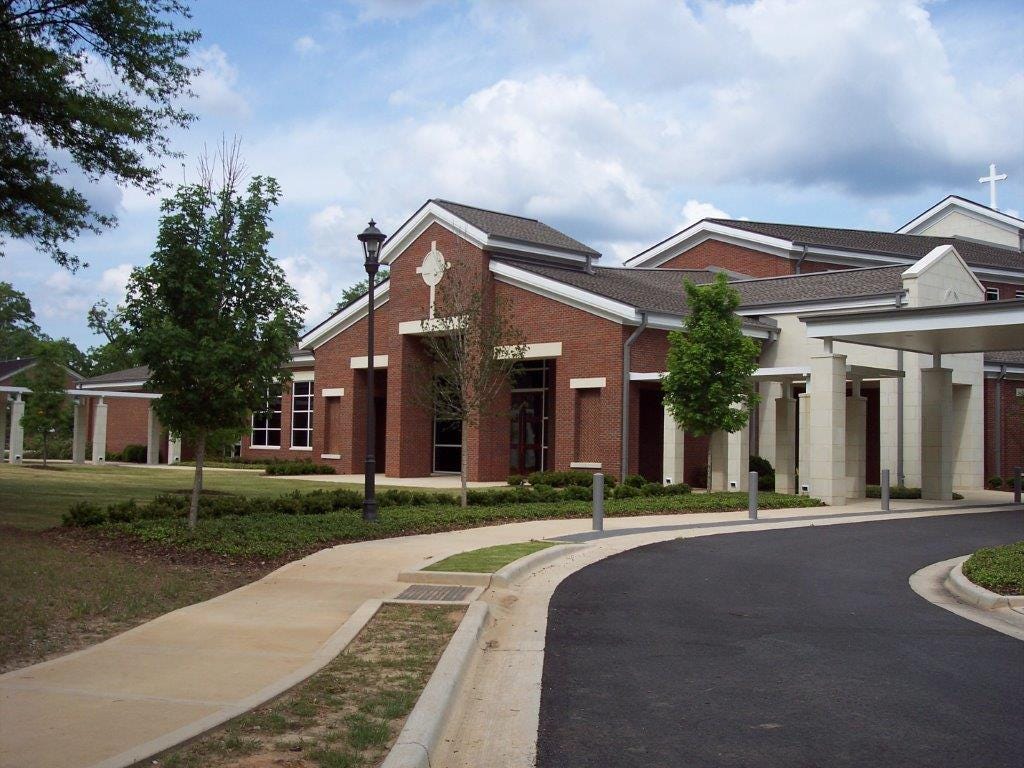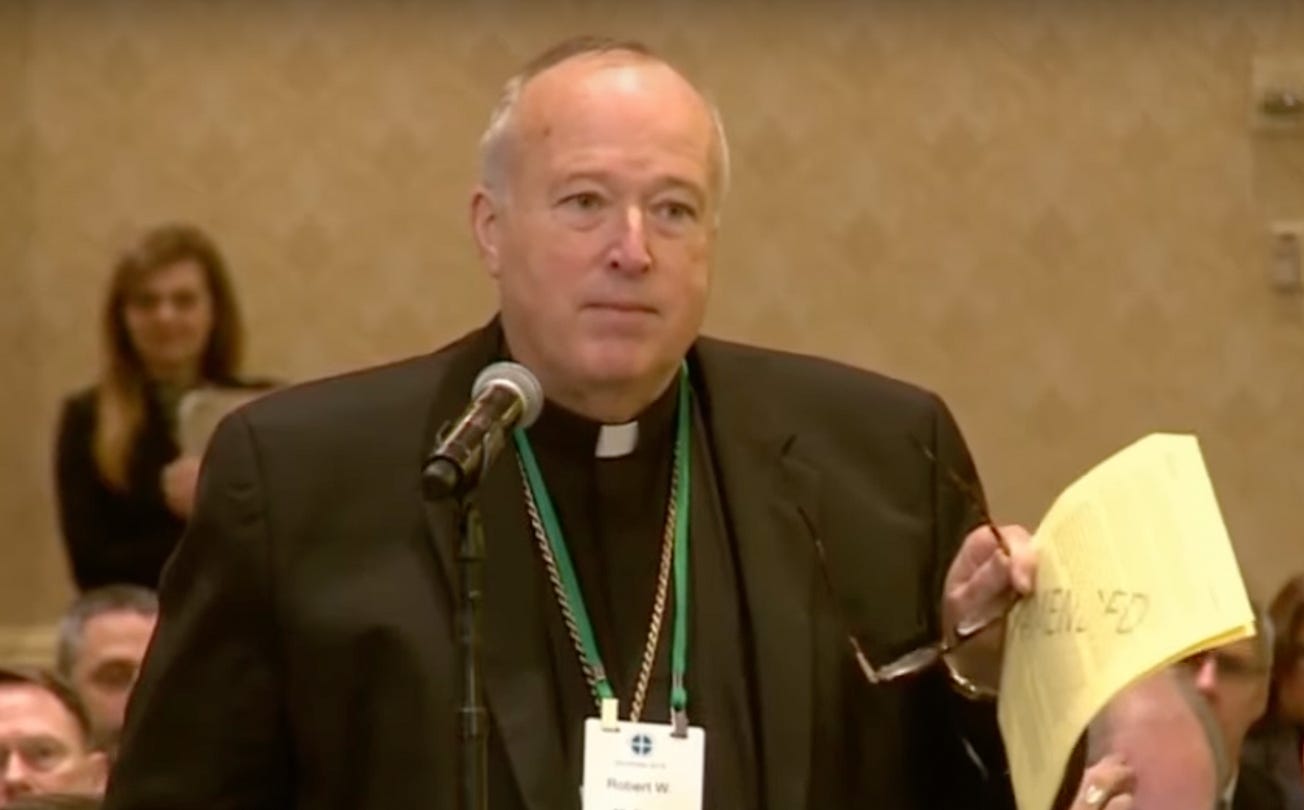A woman who admitted to stealing $300,000 from the Alabama parish where she worked was sentenced to five years probation on Tuesday, despite the prospect of a two decade prison sentence.
Kristen Battocletti, 36, who spent more than $200,000 in parish money on TikTok Coins, was also ordered to pay back purloined funds, in a sentence which, according to one expert on parish theft, is unlikely to deter future crimes against parishes.
A spokesman for the Diocese of Birmingham told The Pillar that while it had not advocated in court for Battocletti to receive a light sentence, diocesan officials did tell FBI agents that they hoped Battocletti would receive a sentence of probation for her crime.
—
According to a diocesan spokesman, Battocletti began in 2018 working as an administrative assistant and bookkeeper at St. Francis of Assisi University Parish in Tuscaloosa, Alabama.
In late 2023, “the parish finance council uncovered what appeared to be deliberate misuse of funds over a three-month period of 2023,” spokesman Donald Carson told The Pillar.
The finance council also noticed that Battocletti seemed to have taken “specific actions to avoid detection through standard review processes,” he added.
A diocesan audit and law enforcement investigation found that “Battocletti engaged in a scheme to defraud St. Francis of Assisi University Parish from April to October 2023,” according to the Northern Alabama U.S. Attorney’s Office.
Charging documents alleged that Battocletti used a parish credit card to buy more than $220,000 worth of TikTok Coins, which can be used on the TikTok app as payment or gifts to content creators.
“Through the scheme, the defendant initiated more than 600 unauthorized transactions and received approximately $300,000 to which she was not entitled,” prosecutors said.
Because Battocletti also used the parish credit card to transfer money, across state lines, to her Cash App account, federal prosecutors charged her with wire fraud. In July, Battocletti pled guilty to the charge, and agreed to pay back $299,342.69 to St. Francis Parish.
Despite facing up to 20 years in prison, Battocletti was sentenced to 60 months, or five years, of probation, and no jail time. As a condition of her sentenced, Battocletti was also ordered to “participate in a mental health treatment program,” and was forbidden from opening lines of credit or taking loans without permission of her probation officer.
Carson emphasized to The Pillar on Wednesday that the parish and diocese provided full documentation during the investigation into Battocletti’s crime.
He initially told The Pillar that “matters of charges and sentencing were completely in the hands of the justice system,” and said that the diocese had not provided any letters or statements to the court during the sentencing phase.
In fact, the diocese also seemingly declined to offer a victim’s impact statement during sentencing.
But after a local news station reported Wednesday night that the diocese had requested Battocletti receive probation, Carson told The Pillar that diocesan officials had told an FBI investigator that “we would prefer to see probation for Ms. Battocletti.”
Carson told The Pillar that the diocese preferred probation because of an undisclosed “personal situation,” but declined to comment on any extenuating circumstances in the case.
He also said a preference for a probation sentence was “a matter of … placing higher priority on keeping her family together.”
“Please understand that the conviction, probation and restitution order still will have profound and long-term impact on her life,” Carson added.
—
Robert Warren, a retired IRS investigator and professor of accounting at Radford University, has conducted extensive research on financial crime in Catholic institutions.
Warren told The Pillar that in his view, sentences of probation are ineffective at deterring future instances of parish theft
Parish administrators and employees who have committed similar crimes have received prison sentences, often of several years, Warren noted. Battocletti likely did not, he said, because prosecutors did not file a sentencing recommendation, and because the diocese did not request prison time.
In light of his research on parish financial crime, Warren has urged that dioceses support strict sentences for people — clerical or lay — who steal from parishes, largely to make clear to potential criminals that consequences will be significant.
“Criminal sentences serve the dual purposes of ‘particular and general deterrence,’” he told The Pillar last year.
“In other words, the sentence should be imposed to make sure the offender doesn’t commit the crime again, and the sentence should provide a deterrence for those in similar circumstances,” Warren said.
“I think the probation sentences that are commonly imposed serve the particular deterrent, but I don’t see how they serve as a general deterrent.”
In his view, Battocletti’s sentence of probation “failed to create a general deterrent for all those in Ms. Battocletti's position who may be thinking about stealing from their parish to fund their spending sprees.”
“Hunter Biden is the only federal felon who had a better week than Ms. Battocletti,” Warren added.
Battocletti has not yet responded to The Pillar’s request for comment.





